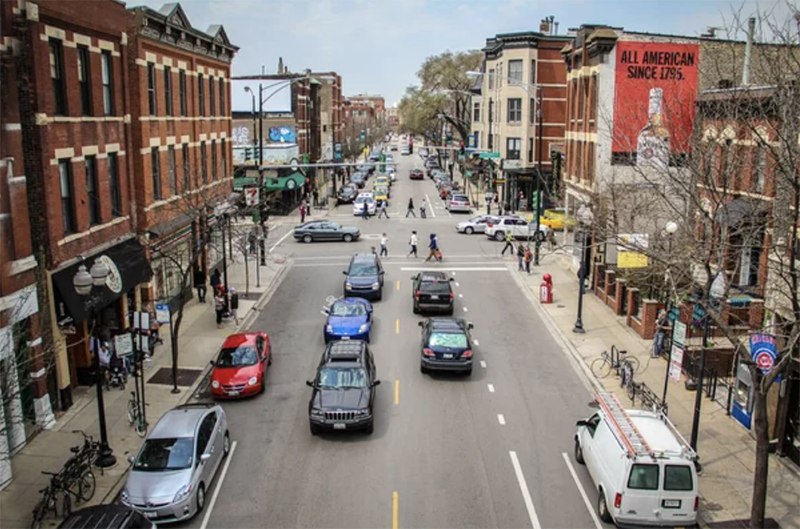Over the last ten years, Cook County has witnessed significant economic improvements, marking a period of substantial growth and prosperity for many of its residents. From rising salaries to a decrease in poverty and unemployment rates, the region has seen positive changes that signal a healthier economy. However, despite these advancements, certain areas within the county continue to grapple with high levels of unemployment, underscoring the uneven nature of economic development across different communities.
Rising Incomes and Educational Attainment
A recent analysis by WBEZ of Census data highlights a promising trend in Cook County and its environs: household incomes have seen a substantial increase, even when adjusted for inflation. This rise in income is coupled with a higher percentage of adults obtaining at least a bachelor’s degree, indicating a positive shift towards greater educational attainment. Such trends not only reflect a growing economy but also suggest a more educated workforce capable of tackling the challenges of the modern job market.
Reduction in Poverty and Unemployment
The efforts to bolster the economy have borne fruit in the form of reduced poverty and unemployment rates across Chicago and suburban Cook County. These improvements point to a successful period of economic recovery and growth, where more individuals and families are experiencing financial stability. Despite these gains, the progress is not uniform, with certain areas still facing the harsh realities of economic hardship, highlighting the need for targeted interventions.
Income Disparities and Gentrification
The economic landscape of Cook County is complex, characterized by stark disparities in income and the phenomenon of gentrification reshaping neighborhoods. Areas such as Logan Square illustrate the dramatic shifts that can occur, where rising median household incomes signal both progress and displacement. These changes underscore the dual-edged nature of economic development, where increased prosperity in some neighborhoods can lead to challenges in affordable housing and community displacement.
Educational Attainment and Employment Opportunities
The distribution of educational achievements across Cook County reveals a varied landscape, where some communities boast high levels of bachelor’s degree attainment while others lag. This educational divide has significant implications for employment opportunities and economic mobility, with higher education levels often correlating with lower unemployment rates and better job prospects.
Persistent Unemployment Challenges
Despite overall improvements, Cook County still faces significant unemployment challenges, with some areas experiencing rates as high as 20% to nearly 48%. These figures are among the highest in the nation, indicating that the benefits of economic growth have not reached all corners of the county. Addressing these persistent unemployment issues requires targeted policy interventions and community-based approaches to ensure that economic growth benefits all residents.
Conclusion
The past decade has brought about substantial economic improvements for Cook County, marked by increased incomes, higher educational attainment, and lower rates of poverty and unemployment. However, the journey towards economic equity is far from over. The county faces ongoing challenges, including significant income disparities, gentrification, and areas of persistent unemployment. Addressing these issues will require concerted efforts from policymakers, community organizations, and residents to ensure that the fruits of economic growth are shared by all.






